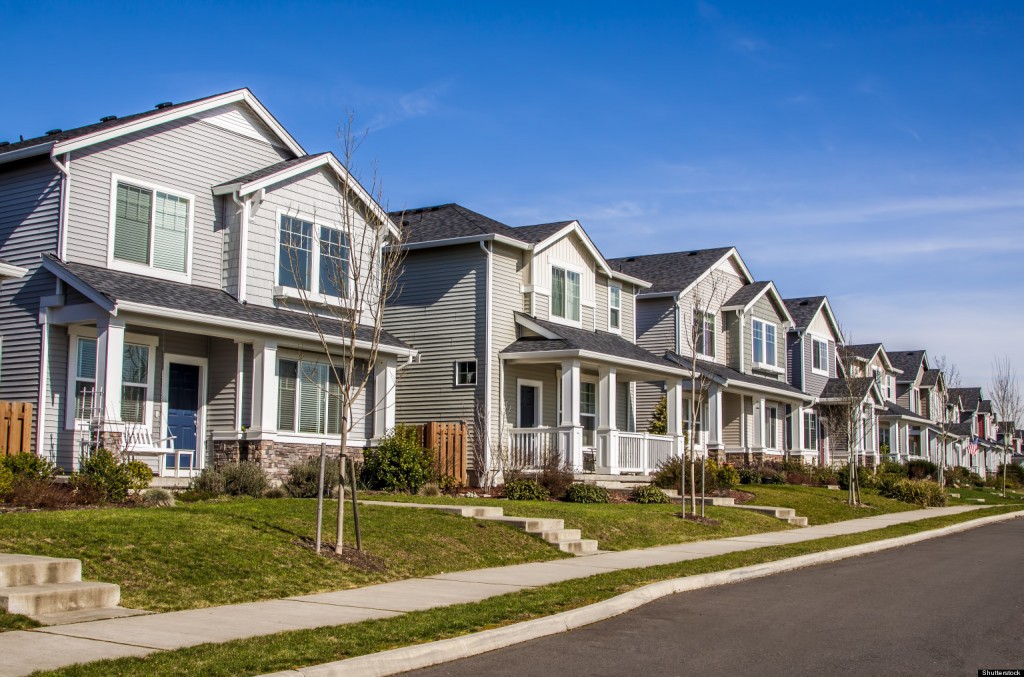
If you’re a real estate investor, you’ve undoubtedly read about – and probably experienced first-hand – the extraordinary lack of existing home inventory available for sale across the country. (If you haven’t, you’re in luck, as several of the articles in this month’s newsletter discuss the issue in some detail.)
In a “normal,” healthy housing market, there’s about a six month supply of homes for sale, meaning that it would take approximately six months at current sales volumes to exhaust the inventory. In today’s market, there’s only a four month supply nationally, and less than that in some of the high demand areas like Coastal California, the Pacific Northwest, and Texas.
There are a number of reasons for this lower-than-normal inventory:
-
- New home construction is still struggling to recover from the depths of the Great Recession. Housing starts clocked in at 1.13 million in September, below the 50-year average of 1.43 million starts. So at a minimum, the industry is building about 300,000 fewer homes than normal, and not nearly enough to meet current demand.
-
- About 10% of home owners are “underwater” on their mortgages, meaning that they owe more on their loans than the value of their homes. Another 14% are in a position of near-negative equity, meaning they have less than 20% equity in their homes, making it unlikely they’d be able to afford to sell their current property and buy a new one. Collectively, this keeps about 12 million homes off the market.
-
- Many other homeowners have hit a psychological barrier – they worry that if they sell their own home, there simply won’t be anything available for them to buy – and have opted not to sell for the time being.
- Investors have purchased hundreds of thousands of homes and converted them into rental units – the number of single family rental homes has soared from 11 million in 2009 to almost 16 million today, taking all those properties out of inventory.
-
- And even Airbnb is contributing to the shortage – there are over 660,000 properties across the country that are listed as short-term rentals through this program.
Some of these trends are gradually correcting themselves. As property values continue to rise, fewer and fewer homeowners are in negative or near-negative equity positions. And builders have completed more single family homes in each of the last three years – 696,000 in 2015, 751,000 in 2016, and 819,000 forecast to be completed this year.
In the meanwhile, the lack of inventory makes investing more challenging, but also, somewhat counter-intuitively, presents tremendous opportunities for investors.
There are still properties available – as I write this, there are over 40,000 properties for sale on Auction.com. And the majority of these homes are much better suited to investors than to typical home buyers – especially first-time home buyers. Many of these properties have been in the foreclosure process for several years (particularly in some of the states with long judicial foreclosure processes), and will require a fair amount of repair work; some may have title issues; others may be occupied, either by the delinquent borrower, or a tenant. But for an educated, savvy investor, these properties can be diamonds in the rough, often available at prices well below the value they’ll return once repaired, either as rental units or fix-and-flip houses.
And the lack of inventory in today’s housing market helps to ensure the best return for investors who can source, purchase, repair and then re-sell or rent these homes. By purchasing distressed assets and converting them into move-in ready houses, investors are meeting a critical market need, and often turning a tidy profit in the process.
Where are these opportunities? Check out the rest of this month’s newsletters for some great information on the Top Markets for Investing in Rental Homes, the Top 5 Markets for Single Family Housing, and the Hottest Housing Markets, which looks at the nation’s hottest real estate zip codes.
As always, we thank you for your business, and wish you continued investing success.
Cheers!
Rick Sharga


